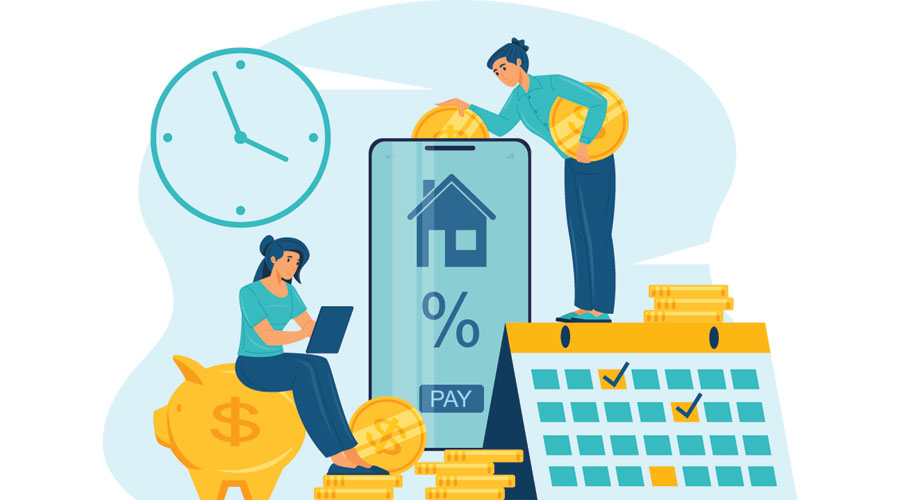
One of the first questions you may have when thinking about building a new home is: what is the difference between a fixed rate mortgage and a variable rate mortgage? Depending on what you decide, the different types can greatly impact your financial health.
Choosing one over the other isn’t an easy decision. It’s important to understand that the choice you make is personal and not just based on the way you feel about changing rates, payments and saving goals, but also upon your comfort level with the ‘risk’ involved.
Below we explain what each type of mortgage is and some pros and cons with both.
What is a variable rate mortgage?
A variable rate mortgage means the interest rate will adjust as soon as the market interest rate, known as the ‘prime rate’ changes. Any fluctuations in the prime rate will affect your mortgage payments by either increasing or decreasing your monthly payment, or the payment will stay the same and the interest portion of the payment will vary. As a consequence of the potential interest rate changes and resulting budget adjustments (adding risk), variable rates are typically lower than fixed rates.
What is a fixed rate mortgage?
A fixed rate mortgage means your interest rate is set at the beginning of your term (the most common length is five years), and your payment stays the same until it’s time to renew your loan. Fixed rates are often higher than variable rates, but they offer both interest and payment stability over the term of your loan.
It’s considered to be a more secure option to ensure a consistent budget, even though it may cost a little more in interest.
Pros and Cons of a Variable Mortgage
Pros:
- Potentially, you can save money over the life of your mortgage
- If interest rates drop, you’ll spend less on the interest
- If interest rates rise, you may still be better off depending on the difference between the fixed and variable rate when you got your mortgage
- Penalties may be lower for breaking or switching (3 months interest vs IRD with fixed rate)
- Historically, variable rate mortgages have been less expensive than fixed
Cons:
- If interest rates rise, the interest portion of your payment will increase
- If interest rates rise, either your monthly payment will increase (which could affect your budget), or more of your mortgage payment will go toward the interest
- Some adjustable-rate mortgages aren’t transferable if you sell your home during the term of your loan
- You may be more worried about your monthly payments increasing if rates go higher
Pros and Cons of a Fixed Mortgage
Pros:
- Rate is fixed for the length of your mortgage term—can essentially ‘set it and forget it’
- Payments stay the same regardless of whether rates rise or fall, so it’s easier for budget planning
- If interest rates rise, you’re protected from any increases
- Terms are typically transferable (can be moved from one home to another)
- Less stress and more peace of mind knowing your payments won’t change if rates rise
Cons:
- Fixed rates are higher, but you may save money in the long run
- If rates go down, you’ll need to refinance or wait for your renewal date to take advantage
How much lower are variable rates?
When comparing a fixed mortgage rate to a variable rate, the variable rate is generally lower. Historically, the spread between the fixed and variable rates has ‘normally’ been between 0.75 and 2 percent. Since 2009, there has been a fluctuation of between -0.28 to 2.08 percentage points between the fixed and variable rates.
Some homebuyers believe that any rate spread is enough to offset the increased risk they are faced with. If rates rise during their mortgage term (and there is always the possibility that they will fall again, of course), they are willing to absorb the extra payment.
A few years ago, there was a study done by CIBC that showed a variable mortgage generally pays off financially for a homeowner in 88% of the cases, as compared to the fixed rate mortgage in only 12% of the cases. However, this comparison was before the prime rate rose in 2022 from 2.45% at the start of the year to 6.45% by the end of the year.
Should you choose a fixed or variable mortgage?
A fixed rate mortgage is more likely to be a better option for you if you are looking for stability in your mortgage and have concerns that the interest rate could rise during the term of your mortgage.
Mortgages with variable interest rates are better suited to homebuyers who are more comfortable with a degree of uncertainty when it comes to the amount of their monthly payment or the outstanding balance at the time of renewal if interest rates rise during the term of their mortgage.
In conclusion, fixed and variable mortgages both have their pros and cons. Fixed rate mortgages are a popular choice for borrowers because of the stability and predictability they provide, although they tend to be more expensive than variable rate mortgages. Variable mortgages offer more flexibility but come with the risk of rising interest rates and payments.
Whichever type of mortgage you choose, it’s important to weigh all the facts before deciding to ensure that you make the right choice for your financial future.